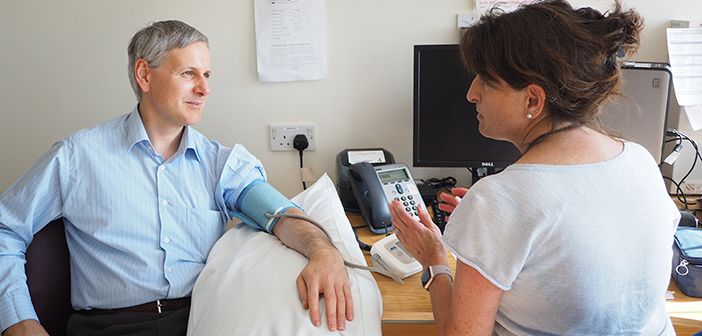Deaths from stroke in England halved in the first 10 years of the 21st Century, thanks to improved treatment, a study by Oxford BRC-funded researchers has found.
However, the study, published in the BMJ, warned that there had been an increase in the number of people under the age of 55 who had had strokes.

The study of almost 800,000 people found that between 2001 and 2010, stroke mortality rates decreased by 55 per cent, while the overall number of strokes fell by 20 per cent, and the number of people who died from stroke decreased by 40 per cent.
But while mortality and case fatality rates declined in all age groups, and the stroke event rate decreased in older people, it increased by two per cent each year in adults aged 35 to 54 years. This, the study said, could be attributed to increasing rates of obesity and diabetes in younger people.
Deaths from stroke have been falling worldwide for several decades, but it is unclear to what extent this is due to a decrease in the number of strokes occurring (event rate), the number of people dying from stroke (case fatality), or a combination of the two.
To explore this further, the researchers from the University of Oxford’s Nuffield Department of Population Health and the Oxford Big Data Institute used hospital and mortality records to analyse data for all residents of England aged 20 and older who were admitted to hospital with a stroke or died from stroke between 2001 and 2010.
They found that the average age at onset of stroke was 72 years for men and 76 years for women, and the average age of those who died from stroke was 79 years for men and 83 years for women.
This was an observational study so couldn’t establish cause, and the researchers point to some limitations, such as the possibility that “minor” strokes treated outside hospital may have been missed. Nevertheless, they say the large study size over a continuous period of 10 years suggests that the findings are reliable and applicable to the whole of England.
The researchers concluded: “Although prevention was effective in reducing stroke event rates in older people, it failed in the young. Our findings show that improved survival of people with stroke is driving the reduction in stroke mortality. However, to reduce the burden of stroke care on hospitals and decrease the dependence on emergency services, prevention of vascular events needs to be strengthened, which would lead to reduction in stroke mortality through reduction in stroke occurrence.”